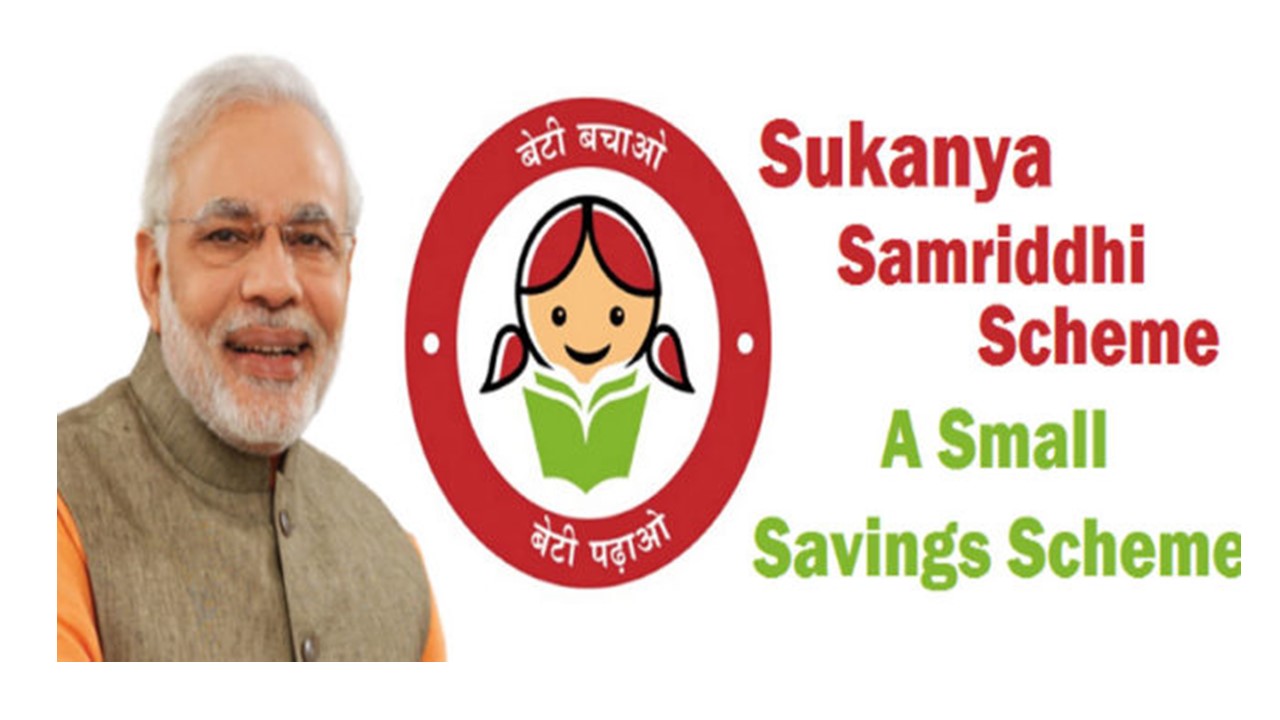Top 10 Ways To Save Income Tax In 2022 While Getting Higher Return

Top 10 Ways To Save Income Tax In 2022 While Getting Higher Return
Do not save what is left after spending, but spend what is left after saving. – Warren Buffett
When it comes to our finances, after fulfilling our basic needs the very first thing that strikes in our mind is saving money specially in a country like India where majority of the population paying taxes is middle class or higher middle class.
When it comes to saving money first thing that comes any person’s mind is saving tax and compounding returns. Therefore, tax planning plays a big role in financial planning of any taxpayer. There are variety of options available as per the need of the taxpayer these options include exemptions as well as deductions.
Financial goal set according to tax liability can easily determine the amount of tax you can save. Tax saved is equal to income earned which again invested in right places can compounds into multifold money, which could easily be out of your pocket into the government’s treasury because you forgot to do the tax planning at the start of the financial year. By doing tax planning returns can be directed toward smart investments which will give higher returns in near future.
INTRODUCTION
In India taxation is basically covered under Income Tax Act 1961. The legal ways to save taxes primarily originates from this act, which enumerates a number of ways to save tax. This article will list the best ways to maximize your tax income savings. One of the ways of saving tax is claiming deductions listed under section 80C till 80U and Section 10 (10), if you are eligible. Claiming these deductions will basically reduces your tax burden and increases your income.
In order to encourage you save and invest more Income Tax Department has introduced, the Chapter VI A deductions, in Income Tax Act which helps in saving tax. In deductions, a specific spent by you is reduced from your gross total income, tax payable is calculated on this gross total income. Therefore, no income tax is calculated on the amount that you have spend according to deductions.
TOP 10 WAYS TO MAXIMIZE YOUR INCOME TAX SAVINGS :
As per the laws and norms set by the government of India, if you are earning in India and your earnings exceed Rs 2.5 lakhs in a particular Financial year, then it is mandatory for you to file an income tax return before due date.
A good financial planning means keeping an eye on your spending, saving as well as investing limits. But a good financial planning is incomplete without analyzing your taxation portion of the income. You can save a lot of money if you keep a check on tax planning as well. Tax planning increases your incomes by legally reducing your tax liability, this way you can retain more cash in your pocket.
For financial year 2022 these are some of the best and most practical options for maximizing your income tax saving :

HEALTH INSURANCE/MEDICLAIM SCHEME
As per section 80 D of the Income Tax Act 1961 deductions can be availed for health insurance. In health insurance if you paying yearly premium for yourself or spouse or children or parents then the deduction amounting Rs 25000 is available in a particular financial year. The amount of deduction is Rs 50,000/- if parents are below 60 years and Rs 75000/- if parents are above 60 years of age.
This claim can be increased to Rs 100,000/- if the taxpaying individual is above 60 years and paying premium for all of the above mentioned categories. In case of above 80 year of age individuals the limit of Rs 50,000/- is extend to medical treatment instead of just Medical Insurance Premium.
In year 2013-2014 government introduced the concept of preventive health care deduction for motivating citizens for being more cautious towards their health. The main purpose for preventive health care is to start the healing process at initial phases of any disease instead of treating the disease at last stages.
If your limit of Rs 50,000/- is not breached then you can also claim Rs 5000/- for preventive health check up of your family in a particular financial year.
WHY YOU SHOULD OPT FOR THIS SCHEME :
As the covid-19 times prevail Medical Insurance is a must have for any individual residing in India, so that they can have an advantage of best medical facilities without burning a hole their pocket while having an of tax saving as well.
It will immensely help you and family in managing finances for medial emergencies without draining out your saving and further reduced saving because of poor tax planning and losing on saved tax around Rs 50,000/-.

NATIONAL SAVING CERTIFICATE
If you looking for fixed returns, safe and secure option backed by government then National Saving Certificate is a good option for you. As per section 80 C of Income Tax Act 1961, deduction is available for investing in National Saving Certificate is Rs 1.5 lakh in a particular Financial Year. This investment option is readily available, you can visit your nearest post office for National Saving Certificate Account.
The National Saving Certificate comes with a lock in period of 5-year and 10-year unlike PPF your money does not get locked in for 15 years. Apart from this interest earned in the duration of 5 year and 10 year is also eligible for deduction under section 80 C.
WHY YOU SHOULD OPT FOR THIS SCHEME :
The main focus of government while promoting National Saving Certificate is specially the individuals that is why only Indian citizen in the capacity of individual is eligible for National Saving Certificate. That is the main reason for exclusion of HUFs, BOIs, as well as NRIs.

NATIONAL PENSION SCHEME
In order to provide a secure old age to the Indian Citizens government has launched this scheme called National Pension Scheme. In this scheme anyone between the age of 18 years to 60 years can invest and claim deduction in Income Tax as well. It act as an dual security which provides secure old age as well as tax saving at present.
In a particular financial year Rs 1.5 lakh is available for deduction if invested in this particular scheme. Which means that this Rs 1.5 lakh will not be included in calculation of Gross Total Income. Not only this, Section 80 CCD (1B) allows an additional deduction of Rs 50,000/- in this scheme.
Apart from this the amount withdrawn at the time of retirement 60% of the amount is tax free. In case where employer also puts upto 10% of the basic salary that amount will also be tax free.
WHY YOU SHOULD OPT FOR THIS SCHEME :
This scheme is best option for people who are doing private jobs as they can avail the benefit of retirement after the age of 60 age without having any government job in hand.

SUKANYA SAMRIDDHI YOJANA
If we take into the consideration our Indian culture and upbringing, one of the major reason for parents to lose sleep is save for daughter’s education and wedding. In this particular deposit scheme you can save for your girl child below 10 years of age. In this scheme interest earn is not taxable along with tax free investment till Rs 1.5 lakh in a particular financial year. So Sukanya Samriddhi Yojana helps in saving money as well as tax.
For opening Sukanya Samriddhi account you visit your nearest branch of any bank or post office with a minute amount of Rs 1000/-, parents can open this account upto two daughters that is two accounts at max.
In this account you can deposit the amount till 15th year, after 15th year this amount will be locked you cannot make any additional investment till 21st year. After that you can withdraw the 50% amount for marriage and 50% for education.
WHY YOU SHOULD OPT FOR THIS SCHEME:
If you are a parent to daughter in India then saving becomes a second nature to you and this is also inculcated in us by our previous generations. This is where this financial tool comes in handy. You can invest in account specifically for daughters while saving tax at present. The rate of interest available in this scheme is usually any other scheme available for fixed investment plus it gives more freedom to the girl child after she attains the age of 18 years.

EQUITY LINKED SAVING SCHEME MUTUAL FUND
Equity-linked saving scheme (ELSS) is a scheme where your money is invested in equity based funds by lump sum or SIP basis. This is best option for you if your risk taking profile lies in medium range as this is one of the best option among all the tax saving options.
Section 80 C of Income Tax Act provides a deduction of Rs 1.5 Lakh maximum in a particular financial year. There is a lock in period of three years ELSS mutual funds and you cannot redeem your funds before the completion of this 3 year duration. But its better to invest for more than 5 years for higher returns in ELSS mutual funds because of volatile market.
WHY YOU SHOULD OPT FOR THIS SCHEME:
First and the foremost reason for investing in this scheme is tax free investment as well as returns. This will inculcate a habit of investing in your generation a well. As compared other type of financial tools for saving tax ELSS mutual funds have short lock in period which means that your money will be subjected to easy liquidity and availability.
At the time of maturity Long Term Capital Gain is applied usually, but in this financial tool upto Rs 1 lakh is exempt from taxation and above Rs 1 lakh 10% Long Term Capital Gain is applicable.

PUBLIC PROVIDENT FUND
For an typical individual one of the safest and best investment option if PPF scheme where you can open PPF account in any post office or nationalized bank. This will help in securing your retirement whcile saving tax at present as well. It usually falls under EEE (exempt-exempt-exempt)category where deposits, interest on deposits as well as maturity amount is exempt under 80 C of Income Tax Act.
The maximum amount exempt from tax in every financial year is Rs 1.5 lakh. The amount can be withdrawn only after the completion of 15 years along with accrued interest.
WHY YOU SHOULD OPT FOR THIS SCHEME :
The option of PPF is available for any Indian Citizen who is looking for low risk portfolio, because PPF is a government scheme and not a market based scheme which will fluctuate according to market. No other kind of entity is allowed this deduction under Income Tax Act.
LIFE INSURANCE PREMIUM
As per section 80 C of Income Tax Act 1961, if you taken life insurance policy and given a premium upto Rs 1.5 lakh for yourself or your wife or your child. Irrespective of the fact that your child is dependent or independent, minor or major, married or unmarried, the claim is allowed under 80 C. This deduction is allowed to an individual or HUFs only not any other kind of entity. After 1st April 2012, if you have purchased any policy and the premium is maximum 10% of the amount assured then only 80 C deduction will be available.
Policy issued before 1st April 2012, the premium should not exceed 20 % of the amount assured for claiming 80 C deduction.
Premiums paid toward a life insurance policy are eligible for a deduction of up to 1.5 lakh under section 80C and income on maturity is tax-free if the premium is not more than 10% of the sum assured or the sum assured is at least 10 times the premium under section 10(10D). However, if the total assured is less than ten times the premium – for example, if you pay Rs.1 lakh for a sum assured of Rs.5 lakh – you will receive a premium reduction of up to 10% of the value assured.
Your deduction will be Rs.50,000, not Rs.1 lakh, in this scenario. In addition, the sum insured given to the nominee remains tax-free in the event of death. However, because the policy does not meet the income tax benefit condition at maturity, the income will be taxed at the marginal tax rate.
If the insurance policy holder voluntarily surrenders his policy or the policy is terminated before 2 years from the date of policy start, the insured will not receive any benefits under section 80C of the Income Tax Act on the premium paid. The sum assured amount plus any bonus (if any) paid on surrender or maturity of the policy, or in the event of the insured’s death, is totally tax-free for the receiver under Section 10(10D) of the Income Tax Act.
WHY YOU SHOULD OPT FOR THIS SCHEME :
This kind of investment option is open for individuals as well as Hindu Undivided Family (HUFs), they can claim deduction of section 80 C as well as 10(10D).
Under 80 C, maximum deduction of Rs 1.5 lakh can be claimed on premium paid in a particular financial year.
Under section 10 (10D), the amount assured received on maturity or surrender of a policy or upon the policyholder’s death is tax free.
If the Life Insurance policy is taken under the name of taxpayer or his/her spouse or his/her children. When it comes to HUFs, deduction is available in respect of policy taken in the name of any of the members of the HUF.

TAX SAVING FIXED DEPOSITS
Fixed Deposits in India is a popular and most opted choice when it comes to saving money because of the fact that it is not related to market fluctuations and gives you a fixed rate of interest over a period of time. This rate of interest is higher than savings account interest. At present under Section 80 C you can get deduction of Rs 1.5 Lakhs if invested in Fixed Deposits in a particular financial year. This amount will be deduction from your Gross Total Income.
This option can be used as emergency option when you have no time left for tax planning and you need to save tax. This can be done with a few clicks on the mobile through net banking it does not matter that bank is open on that day or not. You can open a Fixed Deposit in the span of as little as five minutes and save tax on Rs 1.5 lakh while calculating your Gross Total Income and This amount will be kept safe for lock in time of 5 years along with fixed rate of interest which can be availed on monthly basis.
WHY YOU SHOULD OPT FOR THIS SCHEME :
Benefit of this option is available for individuals and HUFs only. If you are looking for an investment option which runs a low risk profile then Fixed Deposits are for you. Fixed Deposit account allows you to collect and sustain your hard earned money with steady returns and is a good choice if you have no knowledge about investing money and are looking for collecting wealth not growing wealth.
In India where majority of population wants or already have government jobs and they are suppose to get certain lump sum amount as pension at the time of retirement Fixed Deposits are best suited for them as they can avail the benefit of monthly interest on that lump sum amount. It also serves as a good option for emergency funds.
You can also take loan against Fixed Deposits in case you need some money instead of closing that Fixed Deposit all together and losing all your interest as you closed that Fixed Deposit before time. This is suppose to paid back before the closure of Fixed Deposit account.

UNIT LINKED INSURANCE PLAN
If you want to reap the benefit of insurance as well as investments in same amount you can opt for Unit Linked Insurance Plan. This plan is offered by insurance companies for giving dual benefit for same amount.
Insurance company invest a part of the premium in bonds/share market etc and rest of the amount is utilized as insurance cover. If you are not very well familiar with the concept of investing in share market then Unit Linked Insurance Plan can be your go to option because fund managers are responsible for the investment and you get to reap the benefit of hassle free investments.
Under section 10 (10) the amount received on maturity is fully exempt from taxation and section 80 C deduction of Rs 1.5 lakh is also available in a particular financial year. The benefit of section 10(10) is available if withdrawal amount is within the limit of 20% of fund value.
In order to avail these taxation benefit under section 80 C as well as section 10 (10), the premium paid should be within the limit of 10% of sum assured if policy is bought after 1 April, 2012 and premium should be within the limit of 20% if policy is bought before 1 April, 2012.
The amount of total premium given under Unit Linked Insurance Plan should be under Rs 2.5 lakh in a particular year for tax free return. If it is over Rs 2.5 lakh the return at the time of maturity will taxable for the policies bought after 1 Feburary, 2021.
WHY YOU SHOULD OPT FOR THIS SCHEME :
If you want a dual benefit of life insurance as well as investment in same amount, then you should opt for Unit Linked Insurance Plan. In case of emergency this option can offer security to holder’s family. Apart from this Section 80 C deduction is also available for Unit Linked Insurance Plan’s premium and Section 10 (10) exemption is also available on policy’s return on maturity.

INTEREST INCOME IN SAVING ACCOUNT
Having a savings account is very basic thing imbibed in Indians when it comes to finance. In India, when we deposit our money in savings account the banks in return give us a yearly interest of a certain percentage which varies from bank to bank and this interest is subjected to tax. But Section 80 TTA and 80 TTB of Income Tax Act gives us the benefit of deduction where interest earned in all the saving banks cumulatively is exempt from taxation.
Under Section 80 TTA interest upto Rs. 10,000/- is exempt from taxation and under section 80TTB interest upto Rs 50,000/- is exempt from taxation. But Section 80 TTB is applicable for senior citizen who have crossed the age bar of 60 years only.
If your interest is less than Rs. 10,000/- then entire interest amount is exempt, if it is more than Rs 10,000/- then your exemption is limited to Rs 10,000/- only.
In case of senior citizen, if your interest is less than Rs. 50,000/- then entire interest amount is exempt, if it is more than Rs 50,000/- then your exemption is limited to Rs 50,000/- only.
Since we seen above that Fixed deposit income is covered under Section 80C deduction so 80 TTA specifically do not cover fixed deposits, term, deposit, or recurring deposits. But, Interest income on Fixed Deposits can be claimed by Senior Citizen under 80 TTB.
WHY YOU SHOULD OPT FOR THIS SCHEME :
You can eligible for this deduction of 80 TTA if your Gross Total Income is more than minimum taxable income. Senior citizens who are claiming 80 TTB deductions cannot claim 80 TTA deductions. Apart from this if you are having NRE account you cannot claim this deduction because NRE accounts are already exempted from taxation.
Section 80 TTA deduction is available for following kind of entity or person :
- Individual taxpayers
- Hindu Undivided Family (HUF)
- Indian Residents
Section 80 TTA deduction is NOT available for following kind of entity or person :
- a firm, or
- an association of persons, or
- a body of individuals
No deduction can be claimed by any partner or member or individual when calculating total income.
TAKEAWAY :
Usually the taxpayers delay the tax planning portion of their till the month of the due date of filling returns, which results in considerably reduced tax savings. The best time to start planning the tax saving investments is when a financial year begins, so that, by the end of the year your investment can give you good return.
The investments, tax saving as well as financial planning varies according to needs of the individual person. It can vary from person to person, but, these are some the pointers in that direction, which can mix and match with other financial tools to maximizing your earning as well as compound your saving if used correctly.
If done correctly and in time tax planning can save and compound money to sufficiently cover your basic needs like insurance, mediclaim and investing, which will secure your present as well as future.




